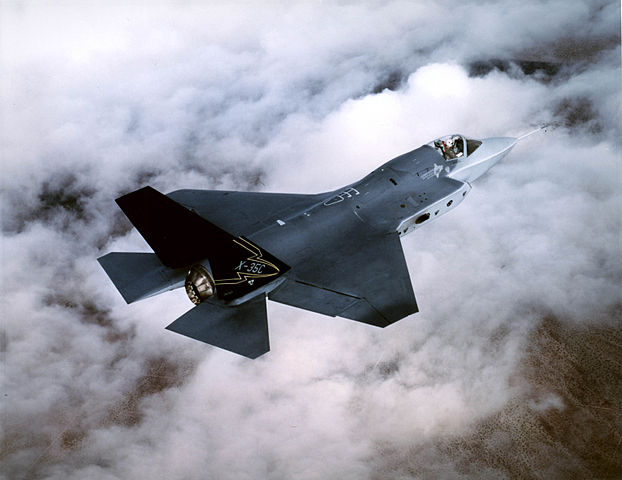Please support our coverage of democratic movements and become a supporting member of rabble.ca.
We continue to discuss defence without first posing some essential questions: will we be at war? With whom? And what are the real security threats to Canada?
It should be clear that, since the Second World War, we have seen millions of lives lost in the Cold War through the proxy conflicts of the large super powers. Since 9/11, and the despicable attack on innocents at the World Trade Centre, we have, in the absence of the Cold War, faced security threats that are largely diffuse. Acts of terrorists are often met with a “war on terrorism,” but that is not a helpful term.
As former Canadian ambassador to the United Nations, Paul Heinbecker, has pointed out, you cannot declare war on a noun. Security threats posed by terrorists are serious, but the approach of preparedness is more closely akin to a policing action than a full military response.
The largest likelihood is that Canada will no longer face another nation to nation conventional war. The security threats of the twenty-first century will be different from those of the last century.
In this new reality, Canada’s traditional strategy of a 3-D approach (defence, diplomacy and development) has the key elements. What we have lacked is a national conversation about the relative importance of each. Sadly, under Stephen Harper, the role of our diplomatic corps has been de-emphasized with embassies closing, diplomats treated as irrelevant, and Canada’s respect for multilateralism itself called into question. Our role as peacemakers, a role invented by former prime minister, Lester Pearson, has also fallen. While we continue to make financial donations to peacekeeping missions, we are no longer making significant contributions in terms of personnel.
Meanwhile, other military establishments around the world, from the U.S. Pentagon to the U.K. military, have identified the climate crisis as a serious security threat. Anthropogenic global warming is a clear and present danger. Global political instabilities will be exacerbated by crop losses, rising sea levels and millions of environmental refugees.
The capacity of our military to effectively respond may be more meaningfully employed through our emergency disaster response than through stealth fighter jets. Responsible preventative steps against this man-made security threat comes through reducing greenhouse gas emissions in an aggressive time-bound fashion.
Canada’s Green Party calls for the following urgent priorities for a realistic 21st century defence strategy:
– Realign our defence spending to increase our capacity and speed in delivering disaster assistance (e.g. through the DART Disaster Assistance Rapid Response Team) and our contributions to UN peacekeeping forces and missions, and decrease our contributions to NATO war efforts.
– Rebuild the broken linkages among Foreign Affairs and International Trade Canada (DFAIT), National Defence and the Canadian Forces (DND/CF), and the Canadian International Development Agency (CIDA), to effectively and efficiently plan, organize, and execute our missions abroad.
– Play a lead role in establishing a standing UN Rapid Response Force with a mandate for peacekeeping and environmental restoration in both international crisis situations and domestic catastrophes like floods, earthquakes, storms and fires.
– Instruct Canadian embassies and consulates around the world to develop effective early disaster reconnaissance and assessment capabilities in order to speed up Canadian response times.
– Oppose the use of the United Nations Responsibility to Protect (R2P) doctrine as a military solution to force aid relief on countries that are rejecting it.
– Focus Canada’s development aid efforts and economic investment in the specific key areas that:
– Foster alternative fuels and energy sources that dramatically reduce the need to import oil and natural gas and further allow the growth of recipient nation independent and/or majority ownership of these sectors and/or businesses as they develop.
– Focus on agriculture sectors that provide for food sovereignty through both subsistence farming and domestic commercial farming methods that are in keeping with green environmentally sound and gender equality principles.
– Increase bilateral trade, where possible, to facilitate the export of value added products from small island economies.
– Support and strengthen cooperation with regional organizations to further the goal of regional independence and sovereignty.
– Advance the UN Convention on the Rights of the Child, and ensure its principles are at the core of Canadian foreign policy.
– Support the creation of a Department of Peace and Security.
– Review Canada’s membership in military alliances including NATO and NORAD to ensure they are meeting Canada’s priorities of diplomacy, development and defence.
– Press urgently for global nuclear disarmament and the conversion of military industries in Canada and worldwide into peaceful and restorative industries.
– Meet the urgent needs for aerial and nautical search and rescue with fixed wing planes and Coast Guard vessels and icebreakers.
– Ensure that Canadian veterans are treated with respect and that those requiring ongoing treatment and/or disability payments are ensured compensation at least as generous as that provided for civilian work place injuries.
These and other steps will assist in achieving true global peace and security.
Photo: wikipedia commons
This blog entry was originally published on Elizabeth May’s blog and on The Hill Times, where it first appeared.



